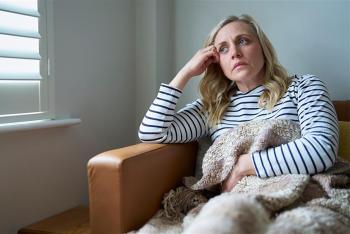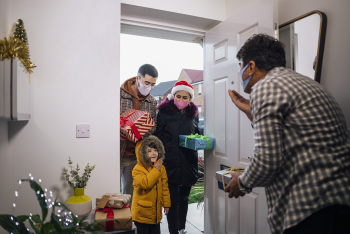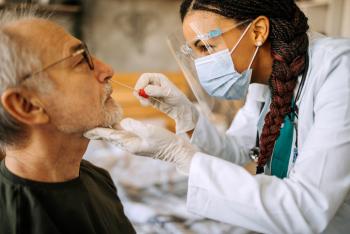Long COVID refers to a range of persistent symptoms that can linger for weeks, months or years after...
Read More
Inspira's Medical Director of Employee Health, Urgent Care and Occupational Medicine Evelyn Balogun, MD shares some advice and useful tools to consider when it comes to deciding whether or not to get vaccinated in the digital age of COVID-19.
I mean, certainly, I think it's very fair and obvious question of what I've decided myself. I would not speak to safety and efficacy of a vaccine that I myself would not receive. Some people do have side effects, but the side effects that we have observed are no different than the side effects that we see from the annual influenza vaccine or some other vaccines that have been around for many, many years. And I really do want to also speak to the fact that I can say that based on the number of vaccines that have been administered. More than 90 million Americans to date have received a COVID-19 vaccine, according to the Centers for Disease Control and Prevention. So we have a lot of data points to let us know about the safety of the vaccine. There are also systems in place to monitor vaccine reactions. Any organization that is administering the vaccine is required to report any adverse effect through a tracking system, known as VAERS (Vaccine Adverse Event Reporting System), that's monitored by the Centers for Disease Control. The CDC also wants you to have the ability to communicate directly to them any side effects you're having, and that is the v-safe program. Visit www.cdc.gov, look up "v-safe," and it walks you through a registration process so that you can directly report any concerns or side effects directly to the CDC. All of this really speaks to the amount of effort and attention that's been placed on making sure that, not only is the vaccine safe, that we are actively tracking for any safety issues.
I do feel very strongly that information should be shared and, from my part as a clinician and healthcare provider, it is my responsibility and duty to make sure I am available and present. Being available and present means not having judgment and being very open to any number of questions. And I say this not just as a healthcare provider, but also I'm a patient in some instances as well, and if I had questions for my own provider, I would like to know that my provider is open and engaged with those questions and hears. What I would say to anyone is if you have a question, ask. It's okay to have these conversations.
The only way we are going to move past where we are right now, is to make sure that we bear responsibility, not only for asking, but we also bear responsibility for sharing the right information. It's that responsibility of asking yourself:
And so, I think as long as we all hold ourselves responsible for that piece, then we will get past this period. Remain part of the dialogue. You may not have heard that thing that will convince you in this moment, but hopefully if you remain part of that dialogue, that piece that needs to click for you will come across.

Long COVID refers to a range of persistent symptoms that can linger for weeks, months or years after...
Read More
A Very COVID Christmas: How to Celebrate Safely
Read More
After more than two years of masks, social distancing and travel restrictions, this winter is likely...
Read More
The material set forth in this site in no way seeks to diagnose or treat illness or to serve as a substitute for professional medical care. Please speak with your health care provider if you have a health concern or if you are considering adopting any exercise program or dietary guidelines. For permission to reprint any portion of this website or to be removed from a notification list, please contact us at (856) 537-6772